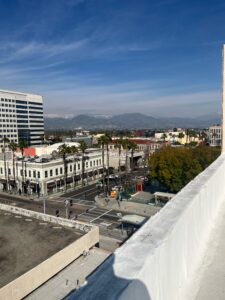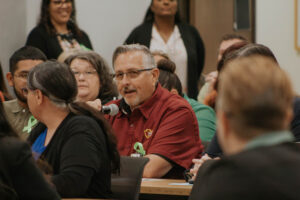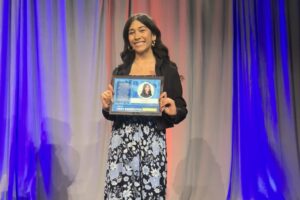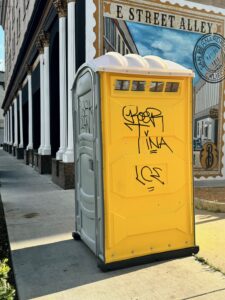Sisters Gloria Macías Harrison and Marta Macías Brown named LEAD Summit IX’s madrinas de honor
4 min read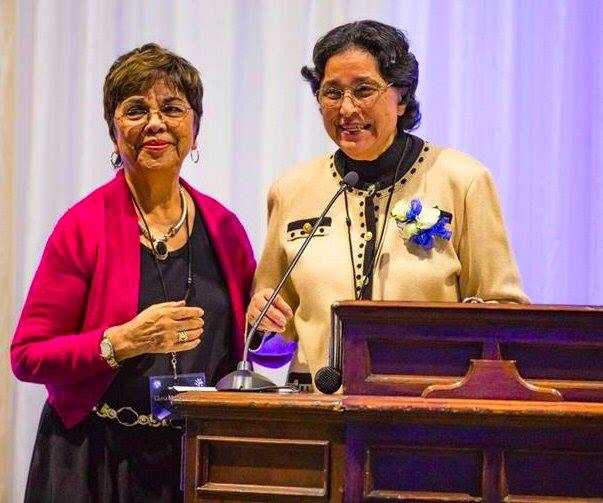
Gloria Macias Harrison, left, and her sister Marta Macias Brown, are recipients of many local, state and national awards, including an NAACP award for their contributions to the community through El Chicano newspaper. Both have served as governor’s appointees on California commissions and remain advocates for social justice, equity and equality in education, the arts, women’s rights, and energy and conservation issues.
Gloria Macías Harrison and Marta Macías Brown, sisters from San Bernardino who have a long history of contributing to the community, are the LEAD Summit IX’s honorary chairs, or madrinas de honor, in keeping with its theme ¡Viva la Mujer! which celebrates the contributions of women.
The 2018 Latino Education Advocacy Days Summit will take place on Thursday, March 29, at Cal State San Bernardino’s Santos Manuel Student Union, beginning at 8 a.m. The free conference brings together teaching professionals and educators, researchers, academics, scholars, administrators, independent writers and artists, policy and program specialists, students, parents, civic leaders, activists and advocates.
To register, go to the LEAD Summit IX website at leadsummit.csusb.edu.
Gloria Macías Harrison and Marta Macías Brown are San Bernardino natives who graduated from San Bernardino High School and became civic advocates and lifelong activists.
El Chicano newspaper
Among their many achievements and decades of work in community rights, education and politics, Harrison and Brown are credited for helping create and grow the El Chicano newspaper. It was founded in 1968 under the auspices of the University of California, Riverside by a group of community leaders from San Bernardino and Riverside counties.
Marta Macías Brown was one of two first editors of the volunteer-driven paper, which served as a voice and educational platform for the Chicano community. Articles focused on social justice, civil rights, school integration and other issues. It became part of the Chicano Press Association, an organization of similar newspapers and newsletters around the country, and served as an organizing tool for voter registration, rallies, meetings and political campaigns.
Gloria Macías Harrison and her husband, Bill Harrison, were active in the Progressive Action League, advocating for equal access to education, housing and employment opportunities. In 1969, El Chicano came under independent ownership with Marta as editor, Gloria as publisher, and Bill as its business manager.
This year, El Chicano, which publishes with nine other community weeklies that make up the family publishing business, Inland Empire Community Newspapers, turns 50, and is already the longest-running, Chicano-owned and -operated publication in state history.
Community service
Gloria Macías Harrison served as president of Crafton Hills College for 12 years and as vice president of instruction for six. She taught for 20 years at San Bernardino Valley College and was dean of humanities for three. She retired in 2011 and was elected to the San Bernardino Community College Board of Trustees in 2012.
In addition to serving on San Bernardino’s Charter Committee, Macías Harrison is a member of Kiwanis and is on the board of the Valley Concert Association, the Brown Legacy, Crafton Hills Foundation, KVCR Education Foundation, San Bernardino Valley College Foundation and is currently a member of the League of Women Voters, the American Association of University Women, and the Rialto Business and Professional Women.
She serves on several advisory committees, including the San Bernardino City Schools’ Making Hope Happen, and is treasurer of the San Bernardino County School Board Association. As past president for the Community Foundation, she is active on the foundation’s Youth Grant Makers Program.
Marta Macías Brown was a founding member of the first United Mexican American Student chapter, a precursor to the Movimiento Estudiantil Chican@ de Aztlán, or MEChA, at California State University, San Bernardino. MEChA, which sought Chicano empowerment and unity through political action, sprang from the civil rights and Chicano Movement sweeping through Southern California and elsewhere around the country during the 1960s.
Macías Brown’s career includes local coordination of the late Sen. Robert F. Kennedy’s presidential campaign, and she worked locally with farm workers’ advocate and civil rights activist Cesar Chavez. She taught at community college, served as a community education specialist for San Bernardino County as a director of Information and Referral Services, and as a student affirmative action officer at the University of California, Riverside.
She also served as press secretary and administrative assistant to the late Congressman George E. Brown, Jr., whom she married in 1989. She is now active in the preservation of her husband’s congressional papers on science and technology, conservation, energy and civil rights through the Brown Legacy Project at UCR.
The Macías sisters are recipients of many local, state and national awards, including an NAACP award for their contributions to the community through El Chicano newspaper. Both have served as governor’s appointees on California commissions and remain advocates for social justice, equity and equality in education, the arts, women’s rights, and energy and conservation issues.
This year there will be four related events that will make up LEAD Week along with the annual summit:
- March 26: Binational Parent Leadership Institute (BPLI) Colloquium, at the offices of the San Bernardino County Superintendent of Schools;
- March 27: Catholic School Expo and Career Day III, at the CSUSB Santos Manuel Student Union Events Center;
- March 28: Puente Student Leadership Forum III, at the Doubletree Hilton in San Bernardino; and
- March 31: Cesar E. Chavez Memorial Breakfast VII, at the CSUSB Santos Manuel Student Union Events Center.
Now in its ninth year, LEAD serves as a primary site for a set of innovative and productive programs, publications and events for Latinos and education. These projects involve significant participation of faculty, students and administrators, as well as partnerships in the region and nationally.
The projects also create strong interactive connections with Latino networks in the U.S., as well as Latin Americans and Indigenous Peoples throughout the Americas and the world, many whom are already in contact with LEAD personnel and the university.
For more information and to register online for the conference, visit the LEAD Summit website at leadsummit.csusb.edu, or call (909) 537-7632.
